Book Reviews: Ranking Modern Greek Mythology Retellings
Reviewing titles from Madeline Miller, Jennifer Saint, Natalie Haynes, and Claire North
About two years ago, I picked up Madeline Miller's The Song of Achilles because it was getting a lot of acclaim on queer TikTok. Fast-forward, and I’ve read over a dozen modern mythology retellings, the entire Odyssey, and am currently working my way through the Iliad (if I read three pages every day I’ll finish by the end of 2025.)
You all know when I get into something, I really get in deep. This is why, in 2021, I listened to every Broadway musical cast recording from 1950 to 2020 (all the blogs are on here!) It’s why I’m currently subjecting myself to reading every Freida McFadden book for a future ranking (15 down - 12 to go!)
So today, I’d like to take you through the work of four of my favorite authors of one of my favorite genres, “modern feminist Greek mythology retellings.”
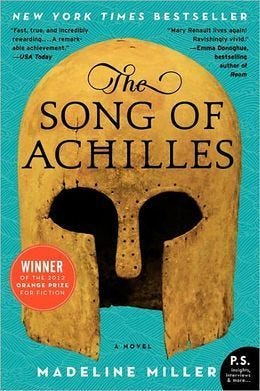
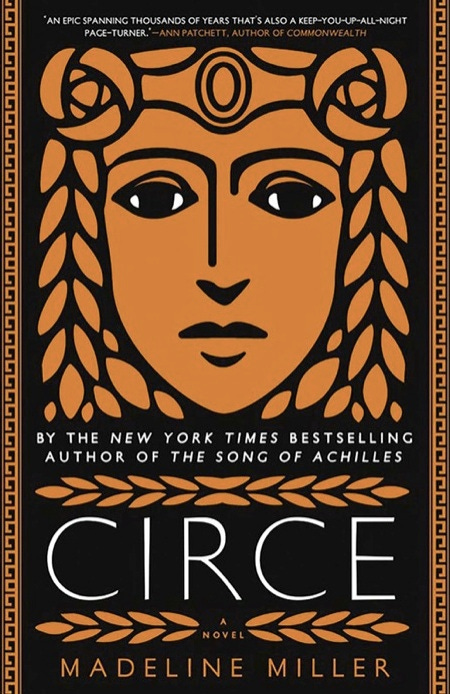
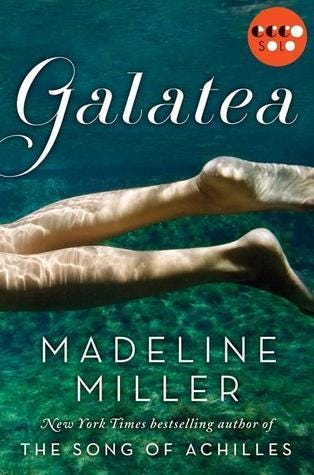
The Song of Achilles, 2011
Plot: Achilles, the powerful and beautiful son of a sea goddess, and Patroclus, an exiled prince, form a deep bond despite their differences and the gods’ disapproval. Trained together in war and healing, their lives change when Helen of Sparta is taken and the Greek heroes march to Troy. Achilles seeks glory, and Patroclus, driven by love and loyalty, follows him into war. As the Trojan conflict unfolds, the two are tested by fate, forced to confront devastating choices and sacrifices that will shape their destinies and echo through legend.
Review: Madeline Miller is a smart author; you can tell she cares about honoring the source text of the mythology while highlighting the plots that modern audiences can most relate to. The story is narrated by Patroclus, Achilles’ best friend and soulmate. This choice makes Achilles wildly more compelling and sympathetic to the reader, less the cocky warlord he has always been portrayed as (although those traits remain.)
If you want a fresh take on the Iliad, or a tragically beautiful story of love and loss, this book may be for you.
“There is no law that gods must be fair, Achilles,” Chiron said. “And perhaps it is the greater grief, after all, to be left on earth when another is gone. Do you think?”
4.5/5 stars
Circe, 2018
Plot: Circe, daughter of the sun god Helios, is born without the power or beauty of her divine family. Shunned, she turns to mortals and discovers her true gift: witchcraft. When her powers threaten the gods, Zeus banishes her to a remote island, where she hones her magic, tames beasts, and encounters legendary figures like the Minotaur, Medea, and Odysseus. Alone but powerful, Circe faces divine wrath and mortal threats alike. As danger looms, she must decide where she truly belongs—among the immortal gods who reject her or the mortal world she has come to love and protect at all costs.
Review: This is one of my favorite books ever. Circe chronicles the life of a lesser god. Circe is born with nothing - no talent, no respect. The child of the sun god and a nymph - she has the charms of neither. Every man she interacts with is dismissive or downright cruel to her, until she discovers her power (how do you say witchcraft in ancient Greek?) Every decision made is in pursuit of the freedom to exist. Her life is lived in exile, marked with cruel and defining interactions with both gods and men. Throughout her many tribulations (and there are many), she forges a home and a family.
Bookriot’s review said it well: “This is the story of a woman finding her power and, as part of that, finding her voice. She starts out really unable to say what she thinks and by the end of the book, she’s able to live life on her terms and say what she thinks and what she feels.”
“When I was born, the word for what I was did not exist.”
5/5 stars
Galatea, 2013 (short story)
Plot: In Ancient Greece, a sculptor’s masterpiece is brought to life by a goddess, becoming his wife, Galatea. Though expected to be obedient and humble, she soon learns to wield her beauty as a source of power and control…
Review: This is a masterful short story about creation, abuse, and love. We experience the story through Galatea’s inner monologue. The story is only 37 pages, so I don’t want to reveal too much, but I think this quote describing Galatea’s relationship with her husband (and creator) sums it up well.
“The thing is, I don’t think my husband expected me to be able to talk. I don’t blame him for this exactly, since he had known me only as a statue, pure and beautiful and yielding to his art. Naturally, when he wished me to live, that’s what he wanted still, only warm so that he might f**k me. But it does seem foolish that he didn’t think it through, how I could not both live and still be a statue.”
4/5 stars
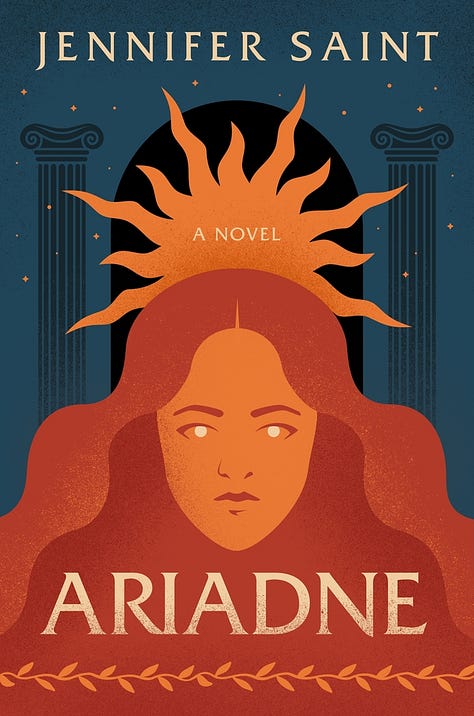
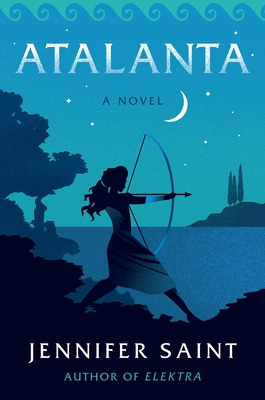
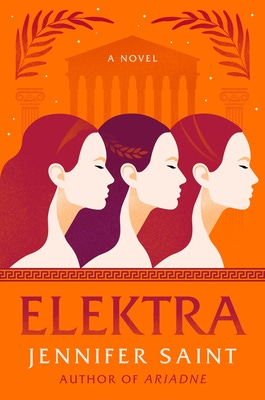
Ariadne, 2021
Plot: Ariadne, Princess of Crete, lives in a palace overshadowed by the monstrous presence of her brother, the Minotaur. When Theseus, Prince of Athens, arrives to slay the beast, Ariadne sees a chance to escape. She betrays her family and the gods to help him, risking everything for love. But her decision brings unexpected consequences, raising questions about her fate and the sister she leaves behind, Phaedra.
Review: Imagine having the Minotaur as your brother…not ideal. Then imagine falling in love with a man sent to kill your brother…also not ideal. This is a true Greek tragedy in many ways. Ariadne is abandoned by the men (and women, frankly) in her life when a plot goes awry. This retelling of Greek myth places the women at its center, exploring their strength, sacrifices, and desire to shape their destinies in a world ruled by men and gods.
"What I did not know was that I had hit upon a truth of womanhood: however blameless a life we led, the passions and the greed of men could bring us to ruin, and there was nothing we could do.”
4/5 stars
Atalanta, 2023
Plot: Atalanta, a princess abandoned at birth for being female, is raised by a bear and protected by the goddess Artemis. Fierce, wild, and free, she is warned never to marry or risk her downfall. Longing for adventure, she joins the Argonauts in their quest for the Golden Fleece, proving herself a warrior equal to any man. But as she defies Artemis’s warning by falling in love, Atalanta begins to question the goddess’s true motives. In a world built for men, she must fight to shape her own destiny while staying true to herself and the life she longs to lead.
Review: My initial review for this on Goodreads was “I really enjoyed the story, but the ending pissed me off.” Short and sweet. This book is truly an adventure story, more so than many of the others discussed. Atalanta is a hunter, a warrior, an Argonaut. A hero. And then she does the one thing she’s not supposed to - fall in love with a man - and it all falls apart.
“I'd been among too many people, living according to their rules for too long. It was clouding my vision, gnawing away at my confidence and certainty, making me doubt the instincts that kept me alive all these years. I needed to remember who I was, who I had always been: A woman who was unafraid.”
3.5/5 stars
Elektra, 2022
Plot: The House of Atreus is cursed, its legacy marked by bloodshed and revenge. Clytemnestra, sister of Helen and wife of Agamemnon, watches her hopes collapse as war begins and sacrifices are demanded. Cassandra, Trojan princess cursed by Apollo to see the future but never be believed, foresees the city’s fall, yet can do nothing. Elektra, daughter of Clytemnestra and Agamemnon, grows up amid betrayal and violence, desperate to break the cycle. Bound by fate and shaped by the whims of gods and men, each woman must confront her destiny.
Review: This is by far my favorite Jennifer Saint novel. Clytemnestra’s villain origin story is one for the ages. Spoilers ahead. Her husband, Agamemnon, sacrifices her daughter for fair winds to sail to Troy, tricking Clytemnestra into thinking her daughter is there to be married, but it's not that kind of altar… While Agamemnon is away fighting at Troy for 10 years, his wife takes a lover, rules his kingdom, and plans his murder. It’s DELICIOUS. And Cassandra (the one Taylor Swift wrote a song about) and Elektra’s plots are great too.
“Nothing brought them more joy than the fall of a lovely woman. They picked over her reputation like vultures, scavenging for every scrap of flesh they could devour.”
5/5 stars
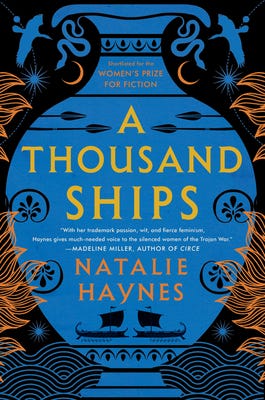
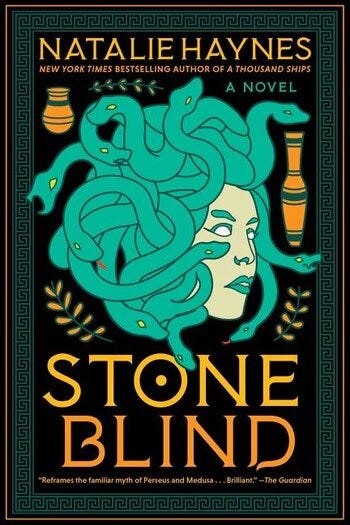
A Thousand Ships, 2019
Plot: A Thousand Ships tells the stories of many women—Trojan survivors facing enslavement, an Amazon warrior who defied Achilles, Penelope waiting for Odysseus, and the goddesses whose feud sparked the conflict. Spanning mortals and immortals, queens and commoners, this retelling places their voices at the heart of the myth, exploring love, loss, vengeance, and endurance.
Review: I read this solely because Madeline Miller gave it a good review on the book cover. But it didn’t disappoint. This is an anthology of stories, narrated by Calliope, the goddess of epic poetry. Each woman is the hero of their own story, despite the tragic circumstances they find themselves in as survivors of war. Hecabe, widow of Priam, stands at the center of the captured Trojan women—wives and daughters left in the aftermath of Troy’s fall—holding them together as they confront uncertain futures at the mercy of their Greek captors. Some names are familiar: Cassandra, the doomed prophet; Andromache, the strong yet often overlooked widow of Hector. Others are less known but equally powerful.
“But this is a women's war, just as much as it is the men's, and the poet will look upon their pain - the pain of the women who have always been relegated to the edges of the story, victims of men, survivors of men, slaves of men - and he will tell it, or he will tell nothing at all. They have waited long enough for their turn.”
4/5 stars
Stone Blind, 2022
Plot: Medusa, the only mortal among the immortal Gorgon sisters, lives with a sense of urgency her family can’t understand. When Poseidon assaults her in Athene’s temple, the goddess punishes not him, but Medusa, transforming her into a monster with snakes for hair and a deadly gaze. Isolated and feared, Medusa lives in solitude, cursed for a crime she didn’t commit. Her story climaxes when Perseus is sent to claim her head.
Review: When I found a Medusa story, I was thrilled. The chance to re-examine her story from a feminist perspective and examine the themes of power and assault through a modern lens perfectly aligned with so many of these reimagined classics I’d be devouring. But this book is barely about Medusa; she almost feels like a side character in her story. The story tries to make some interesting points about power dynamics (see the quote below), but the plot is much more focused on the gods and their infighting. I’m still glad I read it, but I’d read something else on this list first.
“It's important that you know this because he will try to claim there was a battle. But there is no battle to be had between an armed man and a sleeping girl. Don't forget.”
3/5 stars
The Songs of Penelope Series: Ithaca (2022), House of Odysseus (2023), The Last Song of Penelope (2024)
Plot: The Songs of Penelope trilogy reimagines the myth of Penelope, wife of Odysseus, centering the women left behind during and after the Trojan War.
In Ithaca, Odysseus has been gone for seventeen years, and no man has returned to Ithaca. Penelope, once a young bride, now rules in his absence, navigating power struggles and fending off suitors vying for the throne. With only her wits and her loyal maids, she preserves peace in a kingdom on the brink of chaos. This book is narrated by the goddess Hera.
In House of Odysseus, peace is shattered by the arrival of Orestes and Elektra, children of Agamemnon and Clytemnestra. Orestes, tormented by guilt over his mother’s murder, is unstable and dangerous, while his uncle Menelaus schemes to seize his throne. As civil war brews, Penelope must once again outmaneuver violent men and shifting alliances. Her only potential allies are Elektra and Helen of Troy, and even the gods have their own agendas. This book is narrated by the goddess Aphrodite.
The Last Song of Penelope brings Odysseus’ long-awaited return, disguised as a beggar. His homecoming is not a joyful reunion but the beginning of a brutal reckoning. Suspicious of Penelope’s loyalty, Odysseus plots revenge on the suitors, sparking a civil war that threatens everything Penelope has protected. Now, she must summon all her cunning to survive her husband’s wrath, protect her family, and save Ithaca from total collapse. This book is narrated by the goddess Athena.
Review: It takes a lot to keep me engaged for three whole books. I am obsessed with Penelope as a character, always have been. The widow who waited. The weaving wife. The woman who matched cunning Odysseus in wit. The way Penelope is framed in this series is as a quiet but smart queen who runs her kingdom while her husband is away for 20 years. She makes decisions, maintains peace, raises a secret army of women to protect her, tries to instill morals in her teenage son who has never known his father, and keeps a house of unruly suitors at bay. Throughout the series there’s suitor drama, hostile takeovers from other kingdoms, pirate invasions, and of course it all comes to a head with Odysseus’ violent return.
"There is a woman still living inside Penelope full of hope and fear and dreams and despair. But she has been a queen far longer than she was ever anything else, and the queens of Greece are not given many choices that are their own."
“What is more dangerous than admitting you are not a creature of stone, copper-souled and wise in all things, but that you are in fact of flesh and blood and have a heart that can be broken, a soul that can love and be betrayed, a mind that yearns for companionship and a body that desires to be more than a stiff and unbending tool?”
“For though they were not sung, it was the mothers, the daughters and the wives who kept the world turning, the fires lit, the lights burning.”
4.5/5 stars
Let me know if you’ve read any of these titles and what you thought of them!





